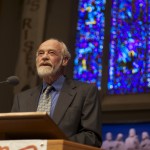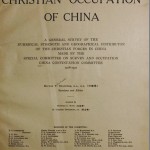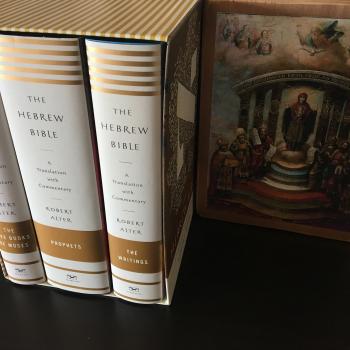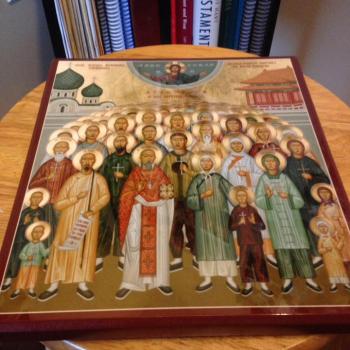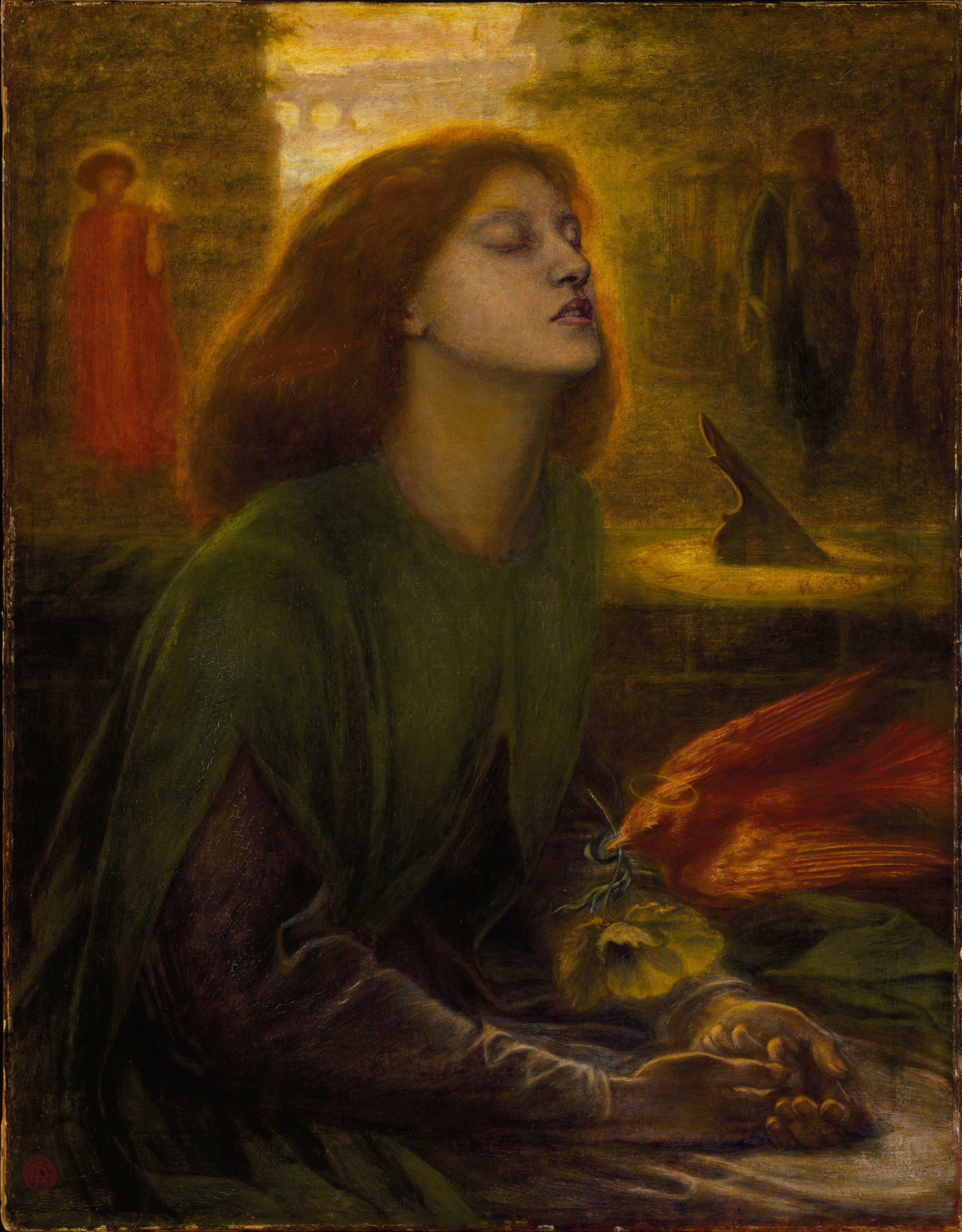
A Protestant friend of mine told me recently that I have ‘an oedipal thing with Protestantism’ and cannot seem to stay in my own ecclesial lane, as much as I try. After writing yesterday’s post on Eugene Peterson, I can confirm that his psychoanalysis is right on the money. Today, I am going to give into more temptation and write about my experience with the homeschooling poster child/ex-megachurch pastor/Regent College student Joshua Harris’s cult classic, I Kissed Dating Goodbye. The timing is especially good right now because Harris has announced that he will be starring in his own documentary produced mostly by his classmates at Regent called I Survived I Kissed Dating Goodbye, and a little bit of opportunism never hurt anybody, them or me.
When I first heard of I Kissed Dating Goodbye, I thought it was a joke. Unlike the average evangelical youth group, my fellowship at the little Cantonese church plant in Fremont that my dad started when I was in high school (at the Catholic school) was (so we thought) isolated from the fads of evangelicalism (we sang hymns; the most contemporary were Maranatha), and our knowledge of ‘purity culture’ was restricted to the highly qualified PhD-in-psychology Dr James Dobson and his minions at Focus on the Family. The first time I heard someone mentioning I Kissed Dating Goodbye with some seriousness was at a Chinese wedding banquet: some uncle, who (now looking back) was obviously drunk, came over to our table, where we were seated with a bunch of pastors, and asked me in Cantonese, Hey, lang jai [靚仔 pretty boy – n.b. not lāng jai, smartass kid), do you have a girlfriend yet? I said I did not. He said, Good! I heard there is a book – at this point, he was having a little trouble with his hand-eye coordination as he pointed in my general direction – called I. KISSED. DATING. GOODBYE. We laughed him off, and that was that.
Eventually, our church plant fell apart, and my dad took us to a pastor’s getaway at Focus on the Family, which I know sounds like we went to Mordor, but it was actually a lot more like an adventure in Odyssey. There, I was inundated with everything I had missed in our isolated youth group: Michael W. Smith’s worship albums (hello, Louisville, Kentucky!), Dennis Jernigan’s gay conversion sob story (it was at a Keith Green concert that he got his all in all), the Family Research Council’s attempt to get a constitutional amendment passed banning same-sex marriage. Like my dad listening to Focus on the Family’s Pastor to Pastor series with H.B. London, Jr., I really liked it at Focus headquarters because, apart from the building looking like a suburban fortress paradise (I love suburbs), the people there actually understood what being a P.K. was (I was so whitewashed that I didn’t know that P.K. is also the short form for puk gai 仆街, the Cantonese cuss word for fall on the street and die). Still, I did not encounter I Kissed Dating Goodbye, but my curiosity was piqued when shortly afterward, we went to a wedding in Vancouver where all the God-centered, Christ-exalting, Bible-something, mission-minded, and [all the other stuff John Piper says] Chinese Canadian evangelicals testified to the wonderful marriage that was taking place. It was all the ‘Christian culture’ I had missed, but yellowface and therefore relevant.
It was relevant because I was a pervert. Like the average Chinese American/Canadian guy with self-hatred issues, I wanted a girlfriend, and the real reason I wanted a girlfriend was so that I could marry her, and marriage, as all perverts know, is for sex. As a self-styled good kid (Cantonese, gwaai zai 乖仔), I was also the ‘my mommy and daddy want me to marry a good Chinese girl ‘ kind of racist, and because we were evangelical Protestant, she had to be Christian too – but only of the kind we were, which meant that Catholics were definitely out of the question. Finding these jook sing evangelicals was like the holy grail: I was going to learn how to get laid in the name of Jesus. No wonder a bunch of us were also into Mark Driscoll.
Very few people in this circle actually read the text of I Kissed Dating Goodbye, at least not carefully. The books that they did read were Bill Gothard’s Basic Life Principles (a local Chinese church actually offered the course yearly), Perspectives on the World Christian Movement (offered by another church – and where most people encountered John Piper’s Let the Nations Be Glad), Elisabeth Elliot’s Passion and Purity, and Larry Crabb’s Silence of Adam. The wonderful thing about these books is that they were biblical, which meant that they mined the Holy Scriptures, genres be damned, for principles that could be applied in everyday living. This included, of course, the everyday concern of finding a girlfriend to marry and bang.
I suppose I Kissed Dating Goodbye was an important biblically-based text, but come to think of it, it wasn’t as important as Crabb’s Silence of Adam. Crabb’s thesis was that when Eve was eating the fruit, Adam stood there and was silent, and ever since that time, men have been silent. The group of Chinese Canadian evangelical men that I knew who were reading Crabb (and Harris and Elliott and Piper), basing their actions on the stereotype that Chinese men are basically a bunch of silent, unemotive, asexual, passive cowards (and therefore bad fathers), decided to mentor Chinese evangelical men younger than themselves so that they would be silent no more (!!). They would be assertive. They would be in accountability groups. They would approach women with confidence, declaring their unequivocal intentions to date them into marriage. They would say that this dating was courtship. They would approach the girl’s parents with confidence to ask for their daughter’s hand in courtship. They would be not dissuaded by the WTF looks on the girls’ parents’ face because most of said parents had grown up in a relatively modern and westernized city called Hong Kong and had gone to school in North America and had dated freely and had only ever gotten the parents involved when there was a proposal for marriage. They would be men of God™. In time, I came to embody this, par excellence (such is the extent of my self-flattery); during an open mic Sunday in December 2004, I approached the microphone with fear and trembling and read out in an unwavering tone my commitment to be a man of God, silent no more, pure and holy, justified by faith alone.
What this meant is that I Kissed Dating Goodbye was the natural fit for the community I was in; what it also means is that it was just one text among many that we read, and very few could be bothered with reading it closely (I am proud to say that mine is throughly annotated). Instead, it would be better to say that the particular Chinese evangelical community lived out the stuff in I Kissed Dating Goodbye whether we had read it or not, and in time, I traveled through other Chinese Christian communities where I taught this same stuff as someone seeking whether ordained pastoral ministry (eventually in the Anglican Communion) would be in my vocation (it was not; I was terrible at it). Friends, acquaintances, and enemies from this time will recall that I even taught these general principles in Sunday schools, Bible studies, fellowship events, retreats (there was a magnificent one I organized titled ‘Holy Sex and the High School Student’), and on and on. Eventually, I got around to reading the actual text of I Kissed Dating Goodbye, but that was not until quite late into the game, and most of everything Harris said I knew already knew (why I wasted my time annotating the damn thing, only God knows).
I guess what I’m saying, then, is that Josh Harris and his infamous book were actually not that important. In fact, Harris admits this himself in the introduction to I Kissed Dating Goodbye when he points out that much of what he’s doing is recycling stuff he got out of Elisabeth Elliot’s Passion and Purity, which is the real courtship/dating classic here because it’s about how Elisabeth Elliot dated and married this guy called Jim Elliot, who was one of five guys who got speared by the Huaorani people when they tried to evangelize them (maybe they shouldn’t have called them ‘Aucas’; that means ‘savage,’ and that’s offensive). I also felt smarter, holier, and much less crass when I read Elliott because she majored in Greek in college, talks about doing Greek homework while having a crush on Jim, and says things like has your love ever been crucified? It’s not real till it has! I later learned that that was an out-of-context rip-off of St Ignatius of Antioch’s letter to the Romans about his eros being crucified so that he can have a passionless martyrdom in the Coliseum, but it worked when I first read it because it was a much holier way of describing getting cockblocked than actually putting it that way. I also read the book thoroughly because the girl I liked borrowed it, underlined parts of it, and made some margin notes, and I thought it would help me win her heart. It didn’t.
All this is to say that for those of us who are honest, it might be a little unfair to make Josh Harris bear the burden of ruining our dating lives; what’s probably closer to the truth is that I Kissed Dating Goodbye said things that just made sense in the world in which we believed that we were growing in Christ – a world that might make no sense to ‘the world,’ as in the one that we thought was secular and non-Christian and full of disorderly sex, but a world that totally made sense to us. For many of us in what we called the ‘Christian world,’ other things that don’t make sense to people outside of our world also make sense. The ‘Reformed theology’ that eventually became known as ‘New Calvinism,’ for example, made sense because it was biblical, and smart guys like Wayne Grudem and John Piper showed that it was so. Gender ‘complementarianism,’ which is a very fine intellectual balancing act of saying that ‘men are leaders and women are followers’ is not misogynistic, also made sense, also because it was ‘biblical.’ Evangelism to people groups by trying to understand their coherent ‘worldview’ also made sense, mostly because we could see missionaries doing that in the Bible, but also because our world was coherent, and everybody else’s must be too, and if it wasn’t, there still must be some underlying presuppositional logic that was coherent that we could draw out of them in order to convert them. Josh Harris and I Kissed Dating Goodbye was just part of this world that made sense. Actually reading the book was optional.
For those of us in the Chinese churches that at least I circulated through, the real problem was not Josh Harris; it was that the world that we created through these biblical principles and highly-scripted theologies were incomprehensible even to our Chinese evangelical families. A number of couples that I know have the story of approaching their parents to court with a view toward marriage only to find their parents completely scared off. Sometimes the parents would be so scared that they’d raise a number of burning questions early on in a ‘courtship’ relationship: Are you dating someone who is Chinese? What are their job prospects? Do they have a history of mental illness? Can’t you shop around for a mate instead of settling down so early? Because many of these practical considerations were foreign to our coherent biblical universe, they all fell under the category of ‘Chinese,’ which meant that it was obviously oppressive, which meant that it was also obviously all from ‘Confucius,’ which is part of how we came to the conclusion that you had to choose between being Chinese or Christian. This might be one tattle tale too far, though: I don’t think anyone ever admits outright in this universe that one of the primary reasons some of us were racist toward our own Christian parents was because our sex drives were uncontrollable.
I am delighted that Josh Harris is walking back on I Kissed Dating Goodbye; it feels right, as the world that I have been describing fell apart for me, as it did for many of my friends. The story of how my coherent biblical world fell apart is much too complicated to recount here; like much of my story, it also has very little to do with Harris and his book. But as it was falling apart, I remember one lecture I attended at Regent College, which is the school that Harris has also been attending in the wake of his world falling apart.
The lecture was by a guy called Dennis Danielson, who at the time was the head of the English department at the University of British Columbia and a committed Protestant Christian to boot. He announced that he had been tasked to give a lecture on the literary culture of the Renaissance and what it had to do with ‘Christian Thought and Culture,’ and he said that he’d do it by working through two texts that had stayed with him throughout his career: Dante’s La Vita Nuova and Milton’s Paradise Lost. Then he said: Today, I am going to teach you how to fall in love.
Love, Danielson showed us, is not at all abstract. When Dante first beholds Beatrice, he can’t eat, he can’t sleep, he feels a pit in his stomach, he can barely breathe:
At that very moment, and I speak the truth, the vital spirit, the one that dwells in the most secret chamber of the heart, began to tremble so violently that even the most minute veins of my body were strangely affected; and trembling it spoke these words: Ecce deus fortior me, qui veniens dominabitur michi [‘Behold, a deity stronger than I; who coming, shall rule over me’]. At that point the animal spirit, the one abiding in the high chamber to which all the sense bring their perceptions, was stricken with amazement and, speaking directly to the spirits of sight, said these words: Apparuit iam beatitudo vestra [‘Now your blessedness appears’]. At that point the natural spirit, the one dwelling in that part where our food is digested began to weep, and weeping said these words: Heu miser, quia frequenter impeditus ero deinceps! [‘Woe is me, for that often I shall be disturbed from this time forth!’]. Let me say that, from that time on, Love governed my soul, which became immediately devoted to him, and he reigned over me with such assurance and lordship, given him by the power of my imagination, that I could only dedicate myself to fulfilling his every pleasure. (La Vita Nuova, Musa translation, p. 3-4).
Love is not something that you will with your mind; it evokes a much more primal dimension of life, one that comes from the gut. Love hurts. It is arresting. It is baffling. It leaves you paralyzed and undone. It is possession, like a god, a ruling spirit, a supernatural power that makes your body react unexpectedly. It takes hold of your natural senses, soul and spirit alike, and commands them against your own will. This is the same with Adam in Paradise Lost, Danielson showed; beholding Eve turns his rational faculties to mush:
All higher knowledge in her presence falls
Degraded, Wisdom in discourse with her
Looses discount’nanc’t, and like folly shewes (Paradise Lost, VIII.551-3).
I sat there transfixed. My ordered world had fallen apart months before, but here were words – poetry – that described what kind of lie I had lived. Love knows no system. Love is beyond speech. To speak of love is to speak poetically about the inability to speak at all before the figure of the beloved, the form that has reduced me to speechlessness at best and incoherent babbling at worst, a fire that feels almost foreign that has possessed me. Love is spirit; love is faerie; love is, as the classics might say, daemonic in the sense that it can almost be confused with the demonic and exorcised to our own peril.
What this suggests, I think, is two things. First, I am not going to take a cheap shot at my Protestant sisters and brothers by saying that I had to become Catholic (or better, Eastern Catholic) to be cured of kissing dating goodbye and learning how to fall in love; Danielson was doing just fine as a Protestant, thank you very much, and misreadings of Pope St John Paul II’s Theology of the Body abound way too much in my world for me to feel superior to my Protestant past. But the second thing is that if it was a kind of exegesis that got me into this mess – a kind of reading a text and drawing out insights from it – then it was a kind of exegesis that began to untangle it too, a kind of reading where I could feel the love, the erotic dimension, the primal desire in Dante and Milton viscerally and perhaps learn to read other texts this way too, maybe even the Scriptures.
Here, I think, lies the paradox of the world in which I Kissed Dating Goodbye made sense: sex has become itself such an object of desire that it is also a thing to be feared. Beneath the order of the biblical principles that make sense of such a world is the undercurrent of this uncontrollable sex drive. But it has to be controlled, disciplined, harnessed, protected, or else it will release chaos into the world. It should be of no surprise, though it is seldom reflected upon, that this attempt to keep the world in principled order coincided with a number of events in the 1990s and 2000s: Bill Clinton’s fling with Monica Lewinsky (for which evangelicals gave them hell), a number of televangelist sex scandals in recent memory from the 1980s, the passage of the Defense of Marriage Act (DOMA), the rise of the Internet and therefore Internet porn and salacious chat rooms. In the San Francisco Bay Area, there were three very public sex scandals that occurred in large Chinese evangelical churches in the 1990s; one was at my church. It was like Fatal Attraction and Basic Instinct, but in real life. Possession is dangerous stuff.
It is easy, in other words, to forget how grounded the worlds created by certain strands of evangelicalism are in the very real world where erotic power drives the chaos of political theatre, technological advancement, economic shocks, and social shifts. What made the worlds I inhabited insular actually has a rather universal, catholic, primal origin: sexual desire is a real force in the world. In fact, this desire for pleasure and love was never really denied in this world; for Pete’s sake, John Piper’s whole thing in Desiring God was about what he called Christian hedonism, the proposition that our desires for pleasure find ultimate satisfaction in God – which is precisely what Harris also says in the sequel to I Kissed Dating Goodbye, Boy Meets Girl. Evangelicals in this strand of what looks like a world unto themselves are actually just as much a part of a world that is run on desire as everyone else; it was simply the techniques of trying to maintain the semblance of order in the sweet chaos that we saw and the carnal fire we experienced in our own bodies that gave us our insularity.
For all of this, it is all too easy to blame a homeschooled kid called Joshua Harris. In his own right, Harris has been all too willing to accept responsibility, not only in the documentary he is going to make, but also in a public apology on NPR. But it has been much harder, at least for me, to admit that I was just afraid of falling in love, and that Harris has very little to do with my repression, as well as that of my friends. Scapegoating Harris is so much easier than confessing to the fear of falling in love.
But Holy John the Theologian says that perfect love casts out fear. If the worlds that we built in fear of love have crumbled, perhaps this is the Holy Spirit guiding us, Josh Harris and the rest of us who blame him for ruining our lives, into all truth. We have no more need for teachers and mentors, for it is the Spirit who is our teacher. In the Spirit, we are being taught how to fall in love. In this love, we learn how the world is truly ordered, possessed as we are by the G-d who is love.

